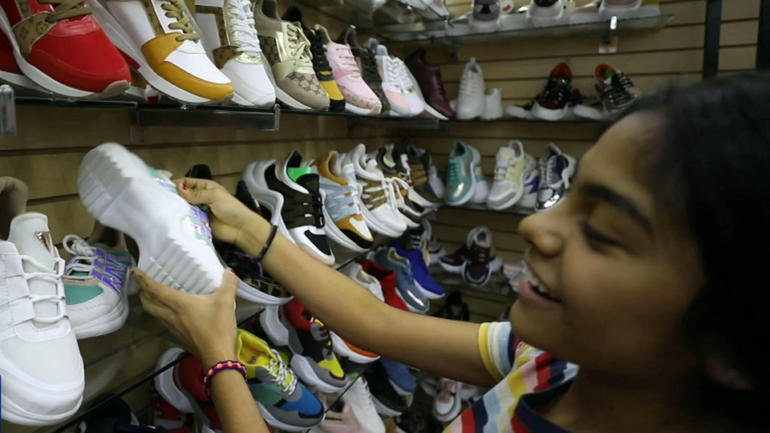Ongoing trade conflicts around the world are forcing businesses to adapt rapidly.
In Mexico, footwear manufacturers are stepping up efforts to remain competitive.
CGTN’s Alasdair Baverstock has our story.
In the central Mexican city of Leon, the shoe is king.
According to the local footwear industry council, local shoemakers account for 80-percent of the country’s entire industry, with more than 3,000 companies manufacturing over 200 million pairs of footwear a year.
Yet in uncertain economic times, the industry is struggling.
Alejandro Gomez, the President of the Guanajuato State Footwear Industry Council says: “On the one hand, we have a general deceleration within the Mexican economy, and on the other hand, the amount of shoe importations keeps growing year on year. So in a market which isn’t growing, but receiving greater imports, the national production is being displaced.”
Following his election last year, Mexican President Andres Manuel Lopez Obrador promised to prioritize the country’s native industries, and reiterated that pledge earlier this month. He said, “National industry will always be able to count on us. I believe we must encourage industrial policies to strengthen our internal markets.”
Yet official policy can be at odds with that promise.
Mexico’s president has announced plans to decrease tariffs on foreign-made footwear imports by 15-percent within two years, something which may affect the economy of Leon. Indeed, the state’s footwear industry council says it may end up costing the local community 15,000 jobs.
It’s a move that has industry leaders concerned. As Gomez explains, “”When you compete in a global market against countries like China, what’s difficult is reaching a target price. Everything can be perfect: your factory is marvelous, you have the right certificates, but you need to produce a pair of shoes for $18. And sometimes it’s basically impossible.”
Yet not everyone here sees doom and gloom. Alvaro Abugaber of Cavana Footwear says he anticipated the increased competition, and has been adapting to fit into the changing economic landscape.
“During the process of this globalization, our business model has been changing over the past three years. Because if you want to compete on price, there are other countries that do that much better. So it’s very important to build a brand that can be supported by story, by quality, by technology, something that can support and that can accomplish our customers’ needs,” Abugaber says.
Leon’s shoemaking industry is bracing for the federal government’s final tariff decision in early November.
Regardless of the outcome, the future of those who planned their business models around an unchanging status quo will remain the most vulnerable.
 CGTN America
CGTN America
 Mexico’s shoemakers step up efforts to remain competitive
Mexico’s shoemakers step up efforts to remain competitive
